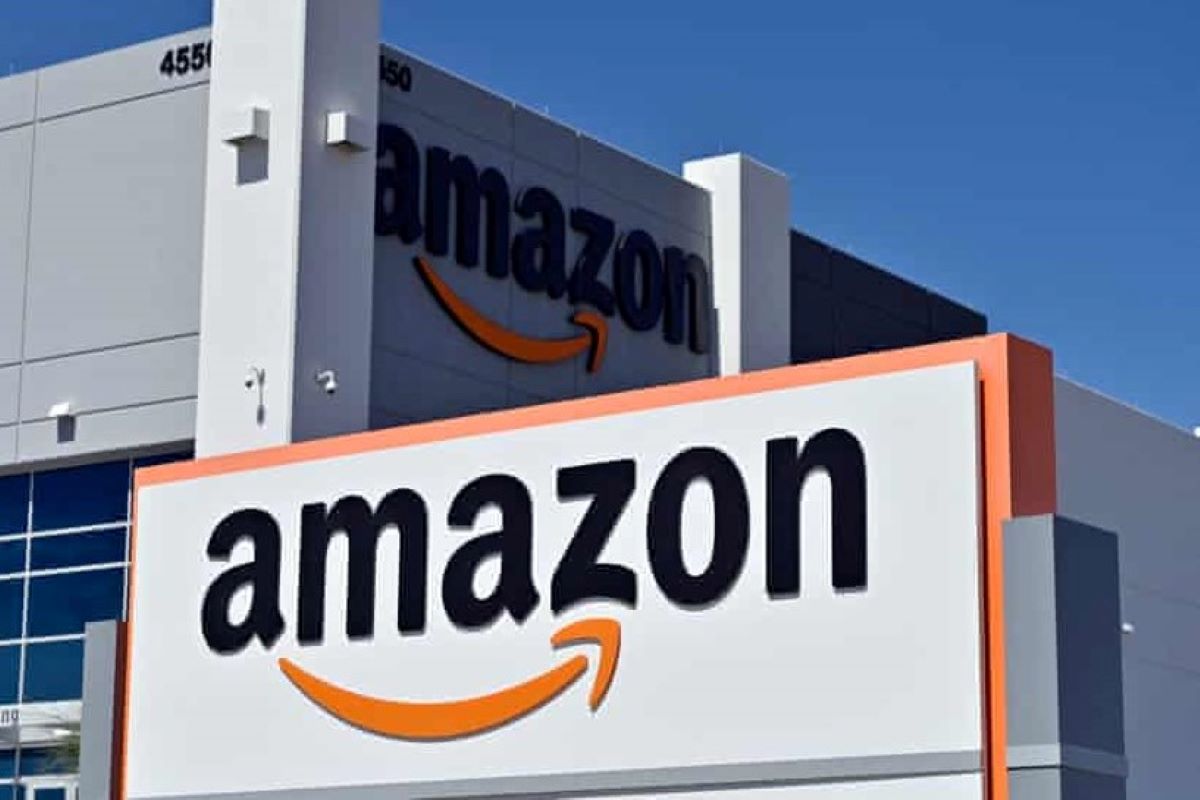Silicon Valley made the tools that allowed Americans, and the American economy, to survive the pandemic. People got their jigsaw puzzles, air purifiers and digital thermometers delivered by Amazon instead of picking them up two blocks or two miles away. The consumer economy swerved from local to national.
Tech is triumphant in a way that even its most evangelical leaders couldn’t have predicted. No single industry has ever had such power over American life, dominating how we communicate, shop, learn about the world and seek distraction and joy.
What will Silicon Valley do with this power? Who if anyone might restrain tech, and how much support will they have? Wealth and the ability to command and control tend to produce hubris more than modesty. As algorithms and artificial intelligence rearrange people into marketing groups, it’s uncertain — to put it politely — how aware the tech industry is of the potential for abuse, especially when it generates profits.
With the House Judiciary Committee’s recent vote to advance a series of bills that aim to reduce the power of the most dominant tech companies, and with President Biden appointing regulators who have sharp views of Big Tech, these issues are finally set for a wider debate.
It has been a tumultuous 18 months, and even the tech companies are having trouble absorbing what happened.
PayPal, the digital payments company, had 325 million active accounts before the pandemic. It reported 392 million in the first quarter. “The winds were blowing in our direction, but we had to set the sails,” said Dan Schulman, the chief executive.
The wind was so strong it blew tech into another universe of wealth and influence.
On March 13, 2020, Glenn Kelman, the chief executive of the online real estate broker Redfin, was biking to work when he got a call from Henry Ellenbogen, a longtime investor in Redfin who had started his own fund.
At Harvard, Mr. Ellenbogen majored in the history of technology. One big thing he learned, he has said, was that technology is developed well in advance of people’s ability and willingness to use it.
“Tell me something,” Mr. Ellenbogen asked Mr. Kelman, according to an account the chief executive posted on Redfin’s website. “When people start touring homes via an iPhone, won’t a lot of them decide, even after this whole pandemic ends, that this is just a better way to see houses? And if this whole process of buying and selling homes mostly goes virtual, how will other brokerages compete with you?”
Mr. Kelman, a little preoccupied by how Seattle’s normally bustling streets were eerily empty, said he didn’t know.
“I do,” Mr. Ellenbogen said. “The world is changing in your favor.”
This was not a general view then, and it certainly was not what Mr. Kelman was experiencing. The first confirmed coronavirus death in the United States was a nursing home resident in a Seattle suburb on Feb. 29. Within hours, home sellers decided that maybe they did not want strangers breathing in their living room and bedrooms. Buyers began to pull out as well.
For Redfin, that was the beginning of a crisis. Within a few days, it shut down its 78 offices around the country. Its stock plunged, losing two-thirds of its value.
“The magnitude of the decline was increasing every day,” Mr. Kelman said. He agreed to sell Mr. Ellenbogen more stock for $110 million, thinking Redfin might need cash to make it through a long drought. In early April, Mr. Kelman furloughed 41 percent of the company’s agents, who were salaried employees. More than 1,000 people were affected.
By that point, real estate was already turning around. Instead of killing demand for housing, the pandemic fueled it.
“The economy split in two on about April 7, 2020,” Mr. Kelman said. “One part of the economy suffered greatly, but another did just fine — the people who said, ‘If the world is going to end in the virus-filled streets of New York, I’m going to Connecticut or Vermont or Maine and I need a house there.’ What we thought was a headwind was a tailwind.”
The pandemic as a whole, it became clear, was a tailwind for tech in very basic ways.
When tens of millions of people were urged and sometimes ordered to stay put in their homes, naturally companies whose very existence involves facilitating virtual lives benefited. The rise of the teleconferencing company Zoom as both a verb and stock market winner was perhaps the easiest call of the year.
“Call it half luck — being in the right place at the right time — and half strategic tactics by companies recognizing this was going to be a once in a lifetime opportunity,” said Dan Ives, a managing director at Wedbush Securities. “What for most industries were hurricane-like headwinds was a pot of gold for tech.”
Even companies that might have seemed vulnerable to stay-at-home mandates did well. Airbnb is a company whose whole existence was about going to stay in strangers’ homes. The pandemic should have killed the buzz for its long-awaited public offering in December. But its stock price doubled on the first day of trading, giving the company a value of $100 billion.
Tech companies like Redfin that reacted defensively in March risked being left out of the recovery in April. The 2020 housing market, pushed by pandemic demand and negligible interest rates, turned out to be the best since 2006.
Those furloughed at Redfin were soon hired back. Mr. Ellenbogen’s deal proved extremely lucrative. But an estimated 10 million people are behind on the rent even as eviction moratoriums start to expire.
Mr. Kelman, more introspective than most tech executives, feels a little queasy.
“Tech used to be delivering these wonders to the world, and all of us in the industry felt the human uplift of general progress,” he said. “With the pandemic, fortunes have really diverged and at least some people in tech are really uncomfortable about that.”
The biggest, and perhaps the only, threat to tech now is from government.
Tech antitrust reformers say the government response to the pandemic, including the national eviction moratorium, repudiated decades of entrenched belief in a hands-off economic approach. Now, the activists say, they will have their moment.
“When the government moved in a robust way to keep everybody afloat, free-market ideologies died,” said Stacy Mitchell, co-director of the Institute for Local Self-Reliance, a research and advocacy organization that fights corporate control. “People now appreciate that the government can either make choices that centralize power and wealth or it can structure markets and industries in ways that deliver benefits more broadly.”
There are signs of pushback against tech that would have been unimaginable a few years ago, beyond the House bills. Ohio sued Google, saying it should be regulated like a public utility. The Teamsters, one of the biggest labor unions, passed a resolution to supply “all resources necessary” to help organize workers at Amazon. Lina Khan, who made her reputation as a critic of Amazon, was appointed Federal Trade Commission chair. On Tuesday, the White House said it would nominate Jonathan Kanter, a tech critic, to be the Justice Department’s top antitrust official.
But there are signs of movement in the other direction, too. The F.T.C. and a coalition of state attorneys general saw their antitrust lawsuits against Facebook dismissed by a Washington judge last month. The F.T.C. can refile an improved suit by the end of this month.
Any measures restricting tech will ultimately need public sentiment behind them to succeed. Even some of tech’s biggest supporters see the potential for worry here.
“We went from being pirates to being the Navy,” Marc Andreessen, a central figure in Silicon Valley for a quarter-century, told the Substack writer Noah Smith in a recent interview. “People may love pirates when they’re young and small and scrappy, but nobody likes a Navy that acts like a pirate. And today’s technology industry can come across a lot like a Navy that acts like a pirate.”
Beyond the threat of misuse of tech lurks an even darker possibility: a misplaced confidence in the ability of one loosely regulated sector to run so much of the world.
Weeks before the pandemic, the RAND Corporation published a study on systemic risk and how a problem with one company can imperil others in its network. Systemic risk was a big issue in the 2008 financial collapse, when the government propped up some companies because their downfall might imperil the whole system. They were too big to fail.
The research group investigated whether tech companies had supplanted financial firms as a key node in the economy, and if the economy was growing too dependent on them. Amazon, whose AWS cloud division has millions of customers, was highlighted.
In December, RAND’s point was made when SolarWinds, which makes software that allows other companies to manage their networks, was revealed to have been infiltrated by Russian hackers. Since SolarWinds had so many clients, including Fortune 500 companies and federal agencies, the breach became one of the worst on record.
Tech’s dominance means the risks are more concentrated than ever. There were problems at the security firm Cloudflare in July 2020, at Amazon in November, at the cloud provider Fastly last month and at the content distribution network Akamai on Thursday, all of which took down other sites at least briefly.
These outages caused little concern.
That’s typical of systemic issues, said Jonathan Welburn, a lead author on the RAND study. “Before 2008, when house prices kept rising and rising, no one wanted to hear how they were being artificially propped up and why that could be a problem,” he said.
The pandemic gave tech companies the power and the cash to make aggressive bets on their individual destinies. Buying another company was one way to do this. Global deal values in tech soared 47.3 percent in 2020 from a year ago.
Zillow, a digital real estate company in Seattle, spent $500 million in February to buy ShowingTime, a scheduling platform for home showings. A few weeks later, Zillow said it would hire 2,000 people, increasing its work force by 40 percent.
But its biggest bet will take longer to play out. Before the pandemic, Zillow discouraged working from home, like most companies. Then last summer, it said 90 percent of its employees could work remotely forever if they chose.
At the time, Zillow was in the vanguard of a movement. Now the idea of the non-virtual office is re-exerting its pull with managers.
Amazon says its plan “is to return to an office-centric culture as our baseline.” Google asserted the same thing, although it backed off after workers rebelled. IBM says 80 percent of its employees will be in the office at least three days a week.
“When people are remote, I worry about what their career trajectory is going to be,” IBM’s chief executive, Arvind Krishna, told the BBC.
Zillow is something of an outlier. Even after a year of working from home, 59 percent of its employees told the company they planned to go into the office once a month or less.
This may be the pandemic’s ultimate tailwind: not just the future coming much faster to your company, but actively pushing your company faster into the future. It is a risk that might be easier to undertake if your market value has suddenly tripled the way Zillow’s did.
If Zillow is wrong about the future and employees are less bound to an office they visit only virtually, the company will stumble. If it is right, it will increase its workers’ loyalty and outdistance earthbound competitors.
“The pandemic forced change on all of us,” said Jeremy Wacksman, Zillow’s chief operating officer. “We didn’t wish for it but now we’re learning from it.”
More than a third of Zillow employees moved in the year that began in March 2020. Many moves were from one part of Seattle’s metro area to another, indicating a desire to stay within driving distance to the office. But other employees dispersed to New Mexico, Mississippi and Alabama. Nine moved to Hawaii.
“They liked their job but wanted to go somewhere else. That used to be a problem. Now it’s not,” said Viet Shelton, a Zillow spokesman who, as it happens, just moved to Manhattan from Seattle because he always wanted to live in New York.
Now that employees no longer have to live where Zillow has an office, interest has swelled. More than 55,000 applied to work at Zillow in the first quarter, up 51 percent from the prepandemic level and about 10 applicants for every person employed there. Zillow has hired more recruiters to deal with the onslaught.
Over at Redfin, the stock is up 400 percent from its pandemic bottom. Redfin paid $608 million in February to acquire a publisher of rental listings, its biggest deal ever. But while the company seems so rich, so successful, so lucky from the outside, it feels different within. Managing growth is almost as hard as managing a downturn.
“Customers are clamoring for service and we can’t hire fast enough,” said Mr. Kelman. “Redfin never had a moment when it was absolutely and totally killing it, but I always imagined when we did that it would be more fun than this.”
https://www.nytimes.com/2021/07/23/technology/silicon-valleys-pandemic-profits.html




